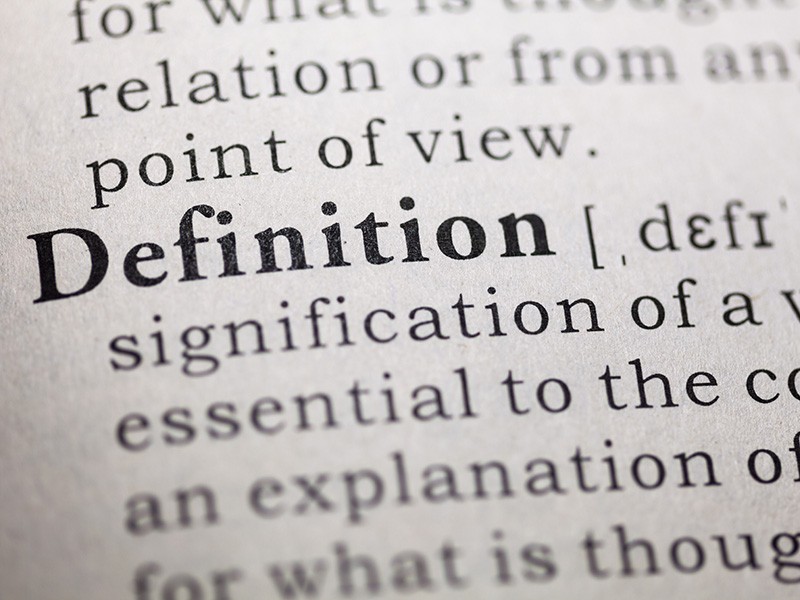I like to learn new words. As someone who must come up with about 600 of them each week, it helps to learn new words so that you good readers don't have to keep reading the same old ones every week.
Learning new words also makes me feel smarter than I am, so it's always exciting – or should I say "exhilarating," "rousing," or "stimulating" – when Merriam-Webster, the folks that put the dictionary together, announce which new words are being added to the dictionary each year.
This year, there are about 530 new entries, and they reveal, unfortunately, that we’re becoming lazy as a society. Many of the new words are simply shortened forms of other words. For instance, “vacay” was added because, I suppose, it just takes to long to say “vacation.”
"Sesh" is a shortened form of “session.” “Marg” is another way to say “margarita.” “Fave” instead of favorite.
"Glamping" was also added. It's a combination of glamorous and camping, which to me means staying at a Marriott where the maid turns down the bed and puts a little mint on the pillow.
Obviously, someone had to be the first person to use these new words in the context in which they were added to the dictionary. That person used the word, and other picked it up and eventually it became accepted in mainstream society. Thus, it gets added to the dictionary.
As an English major, I believe I possess the necessary background to help create new words. In fact, I'm going to petition the Merriam-Webster folks to add "porcinatarian" to the dictionary next year. I consider myself one of these people, someone who enjoys cooking and eating various parts of the pig, especially barbecue.
But I wonder sometimes about all the new words that get added. After a while, the dictionary becomes like your garage or your basement, full of stuff you never use because you keep buying new stuff.
The Webster's New World Dictionary that sits on my desk has some 470,000 entries over 1,716 pages. Yet the average person only knows about 15,000 words. A highly educated person may only know about 40,000 words. But only about 2,000 words are needed for our daily use.
Even if I were egotistical enough to consider myself a highly educated person with a vocabulary of 40,000 words, that would mean there are more than 400,000 words in my dictionary that I don't know. Suddenly, I don't feel so smart.
So maybe, just like you need to get up this morning and clean out the garage, we need to clean out the dictionary. I'm sure there are words there we don't need anymore.
I'd get rid of the word "ecru" immediately. Ecru is just a high-faluting way of saying "beige," and beige ain't no high-faluting color. So ecru goes. We could also get rid of all the $5 words people use to sound superior to the people to whom they are speaking.
I knew a man once at my previous job. He was extremely bright. But he purposely used long, complicated words. He would say things like this, "Let your extemporaneous communications possess a clarified conciseness without theoretical bombast." when all he really meant was, "Talk in plain English."
Some might call a person like that, given to the use of long words, a "sesquipedalian."
The rest of us just called him "pretentious."










